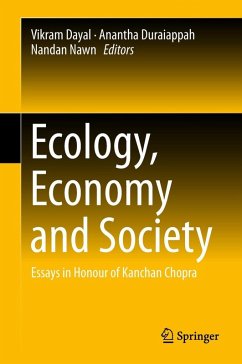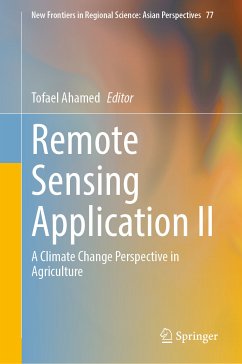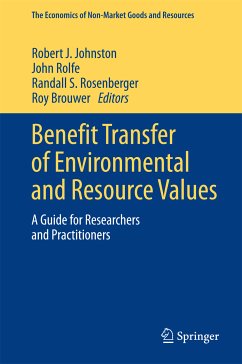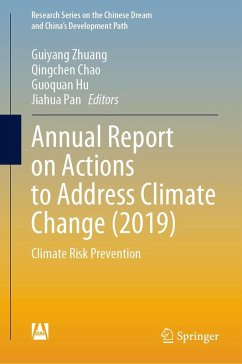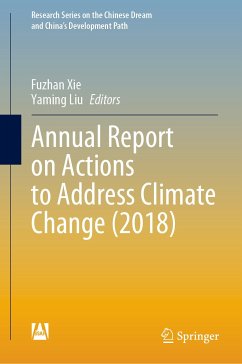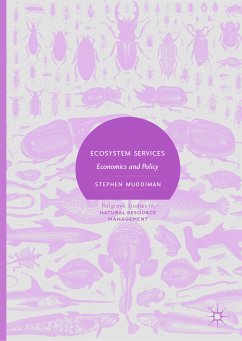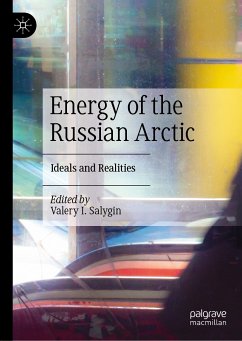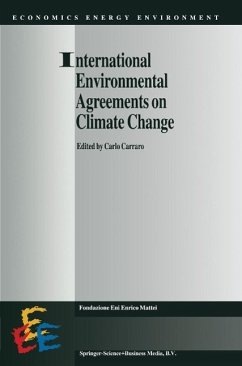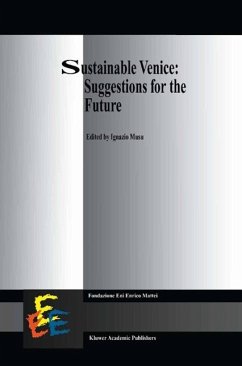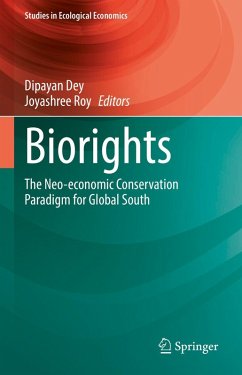
Natural Resource Degradation and Human-Nature Wellbeing (eBook, PDF)
Cases of Biodiversity Resources, Water Resources, and Climate Change
Versandkostenfrei!
Sofort per Download lieferbar
Statt: 139,09 €**
104,95 €
inkl. MwSt.
**Preis der gedruckten Ausgabe (Gebundenes Buch)
Alle Infos zum eBook verschenkenWeitere Ausgaben:

PAYBACK Punkte
52 °P sammeln!
The book addresses the gaps in the body of knowledge from two grounds. Firstly, it adds value through explaining the dynamics of natural resource governance by focusing on the particular arenas of biodiversity resources, water resources and climate change in developing country context. Secondly, it critically scrutinizes the market-centric perspectives on one hand and combines political economy questions that are generally overlooked in discussions of current resource governance framework, on the other. It develops a new framework to examine the reasons behind the degradations of natural resou...
The book addresses the gaps in the body of knowledge from two grounds. Firstly, it adds value through explaining the dynamics of natural resource governance by focusing on the particular arenas of biodiversity resources, water resources and climate change in developing country context. Secondly, it critically scrutinizes the market-centric perspectives on one hand and combines political economy questions that are generally overlooked in discussions of current resource governance framework, on the other. It develops a new framework to examine the reasons behind the degradations of natural resources to offer sustainable solutions to the problems. It shows that the natural resources have been exploited beyond sustainable limits due to the structural rigidities, embedded in, and reproduced by, fragile institutions and unequal power-sharing arrangements under the market-centric economic system. The book formulates a new understanding of sustainability in case of usage and management of natural resources by incorporating the idea of human sociality. It highlights the importance of the well-being of nature, and human beings must go side by side; one without the other is not a sustainable option. The book contains key learnings for scholars and researchers working in the field of development studies who wish to gain a deeper understanding on the sustainable natural resource governance specifically in the contexts of developing countries. For policymakers and policy advocates, the book serves as the groundwork on policies regarding biodiversity resources, water resources, and climate change, specific to the context of developing countries, providing more relevant contents in terms of laying out justification for policy objectives.
Dieser Download kann aus rechtlichen Gründen nur mit Rechnungsadresse in A, B, BG, CY, CZ, D, DK, EW, E, FIN, F, GR, HR, H, IRL, I, LT, L, LR, M, NL, PL, P, R, S, SLO, SK ausgeliefert werden.
Alle Preise in Euro und inkl. der gesetzl. MwSt. | Innerhalb Deutschlands liefern wir preisgebundene Bücher versandkostenfrei. Weitere Informationen: bitte hier klicken
Support
Bitte wähle dein Anliegen aus:
Rechnungen
Bestellstatus
Retourenschein
Storno



